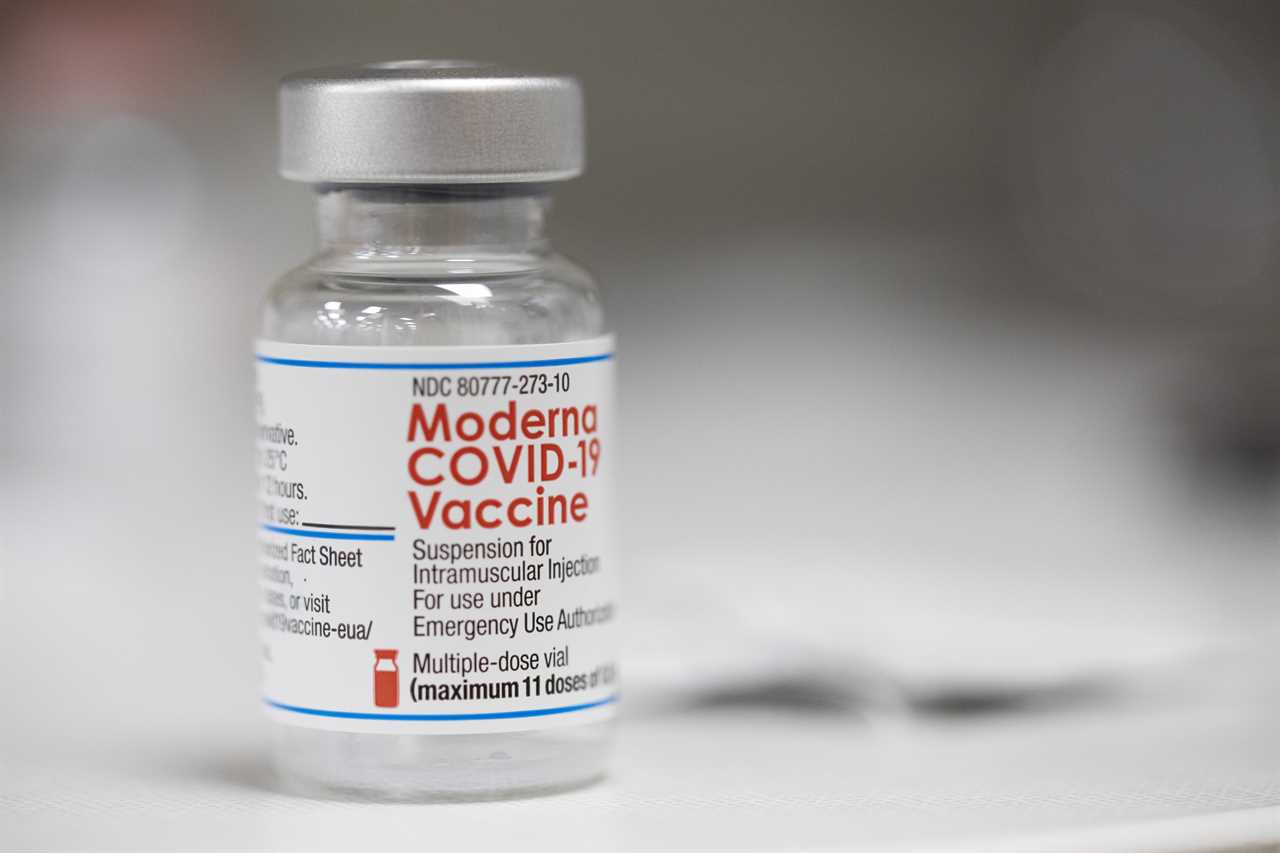
The FDA’s independent vaccine advisers voted unanimously Wednesday to recommend the agency authorize Moderna’s two-dose Covid-19 vaccine regimen for children ages 6 months to 5 years, putting the country’s youngest age group one step closer to immunizations nearly two-and-a-half years into the pandemic.
The FDA is expected to quickly authorize the vaccine for emergency use. The panel will vote later Wednesday on whether to also authorize the Pfizer-BioNTech three-dose vaccine, which would be used in kids ages 6 months to 4 years.
The CDC’s panel of expert advisers will consider whether to recommend the shots’ administration during meetings on Friday and Saturday. Once CDC Director Rochelle Walensky signs off on a recommendation, children are expected to begin receiving shots by Tuesday. Children under 6 who receive the Moderna vaccine will get two 25-microgram doses, four weeks apart.
Peter Marks, FDA’s top vaccine regulator, started off the daylong meeting pointing to the burden of Covid hospitalizations for young children during the Omicron wave, rates that have equaled or exceeded those for other common childhood vaccine-preventable diseases like the flu. More than half of children under 5 who have been hospitalized for Covid did not have underlying health conditions, and 202 in the 6-month to 4-year-old age group have died of the disease as of May 11.
“The intervention we’re talking about here is one that is something that we have accepted in the past to try to prevent deaths from influenza,” he said. “Here we have a different pathogen, but one that has created a lot of havoc just the same.”
Still, the Biden administration is girding for a slog in convincing parents to quickly vaccinate their young children. Summer vacations — and young children receiving various levels of schooling before age 5 — along with misinformation about vaccines could depress early turnout. Many young children also contracted Covid during the Omicron surge, which could convince parents to hold off on immunizing them until they’re further removed from their natural infections.
Recent polling by the Kaiser Family Foundation suggests about 20 percent of parents are eager to vaccinate their children under 5 as soon as they’re allowed to, while nearly 40 percent plan to “wait and see” how the vaccine works in other kids and another 40 percent are more reluctant to immunize at all.
Just 29 percent of U.S. children ages 5 to 11 are fully vaccinated against Covid, compared to nearly 56 percent of 12- to 15-year-olds and 67 percent of 16- and 17-year-olds, according to CDC data ending April 30.
The FDA analyzed the vaccines' ability to induce neutralizing antibody responses in kids that were comparable to young adults, a concept known as immunobridging. Both met the agency's success criteria.
Real-world efficacy against the Omicron variant in the 6-month-to-5-year-old age group for Moderna's vaccine ranged from 36 percent to 51 percent, but efficacy estimates were "generally consistent" with rates seen in observational studies of adults during the same variant waves, the FDA said.
Preliminary analyses of the Pfizer vaccine's efficacy of 80 percent in kids under 5 against disease, though only 10 Covid cases were reported among study participants before the data cutoff date in April, limiting the confidence in that figure.
In both companies' data, there were several unknowns that reflect the current state of adult vaccination in the U.S., including duration of effectiveness and how well vaccination protects against outcomes like long Covid, the FDA said. Children will likely need booster doses in the future, given adults' experience with waning antibody protection, reviewers said.
Adverse reactions like headaches and fatigue were more common in teens than in younger kids, likely because they received larger vaccine doses, the FDA said. Fever was reported more frequently among the youngest vaccine recipients.
The manufacturers did not report any events in their trials that met the CDC definition for probable or confirmed myocarditis or pericarditis — two types of heart inflammation that have been detected as potential side effects of the messenger RNA vaccines, particularly for males ages 12 to 39.
The FDA's reviews of Pfizer’s and Moderna’s data come after months of angst from parents who felt strung along by statements that Covid-19 vaccines would be available for the country's youngest children by early 2022, only to see dates shift. The FDA scheduled an advisory committee meeting in February to consider a two-dose primary series of Pfizer's vaccine, only to pull back once the data suggested a third dose could bolster its effectiveness.
Parents and advocates for children under 5 to get access to vaccines erupted over a POLITICO report in April that the Biden administration was leaning toward authorizing both Pfizer-BioNTech's and Moderna's products at the same time to make it easier to promote the shots, a move some believed resulted in regulators sitting on Moderna's application while Pfizer continued to collect data and complete its submission. FDA Commissioner Robert Califf later insisted there would be no holdup on Moderna's application, but the advisory committee meeting schedule ultimately ensured both vaccines would be considered head-to-head.
Parents who spoke during the public comment period Tuesday and Wednesday indicated they were still angry at the perceived delay, noting that most children who end up receiving Pfizer’s three-dose series won’t be fully vaccinated by the time the school year starts.
“We have waited too long, and too many families have suffered already,” said Fatima Khan, cofounder of Protect Their Future, a grassroots group that has advocated for vaccine access for the youngest kids.
----------------------------------------
By: Lauren Gardner
Title: FDA advisers endorse emergency use of Moderna Covid-19 vaccine in babies, toddlers
Sourced From: www.politico.com/news/2022/06/15/fda-advisers-endorse-emergency-use-of-moderna-covid-19-vaccine-in-babies-toddlers-00039927
Published Date: Wed, 15 Jun 2022 14:15:06 EST
Did you miss our previous article...
https://consumernewsnetwork.com/politics-us/fema-flood-program-could-violate-civil-rights-law






